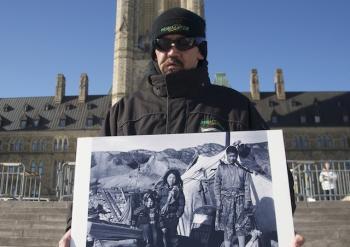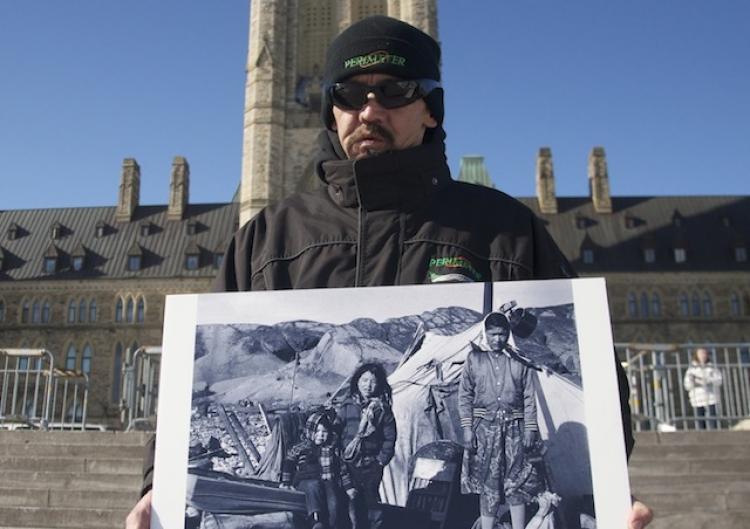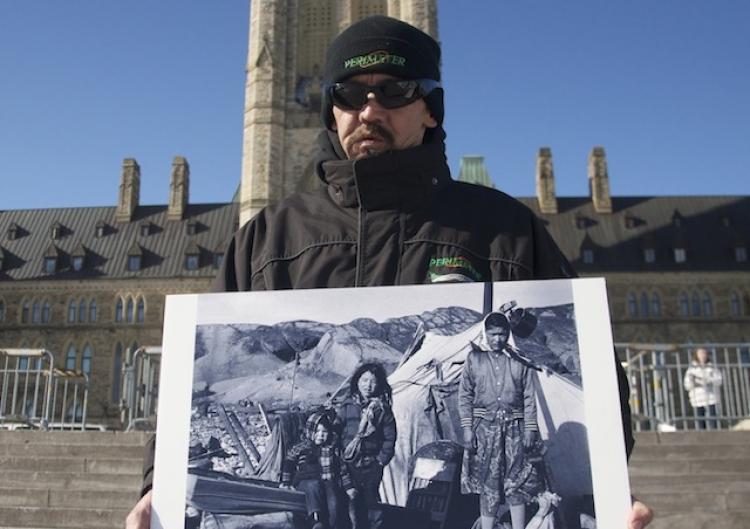OTTAWA—It’s the kind of story that could never happen today. The outrage at even suggesting such a plan would be enough to frighten any aspiring public servant or elected official into silence.
Not so 50 years ago.
That was when the Canadian federal government, in agreement with the Hudson Bay Company, miscalculated the cause of declining caribou herds and decided the Sayisi Dene Native tribe had to leave its traditional home around Duck Lake, Manitoba, and be dropped off 310 miles northeast in the town of Churchill, on the unforgiving shores of Hudson Bay.
The community was forced to give up their traditional life of hunting caribou and take up permanent residence in the relatively “urban” town setting.
What followed was the sad tale of a broken people. Many died from causes ranging from tuberculosis to house fires, including the parents of Maria A. Duck, an elder who came to the Canadian Parliament on Tuesday with other tribe members to call on the government to apologize and make amends.
“The Sayisi Dene, who were a self-sufficient, caribou-hunting nation who lived off the land, endured immeasurable hardships and persistent social challenges as a result of the forced relocation,” said New Democratic Party member for Churchill Niki Ashton, during the press conference.
She said the government needed to make a formal apology and a plan for compensation.
Not so 50 years ago.
That was when the Canadian federal government, in agreement with the Hudson Bay Company, miscalculated the cause of declining caribou herds and decided the Sayisi Dene Native tribe had to leave its traditional home around Duck Lake, Manitoba, and be dropped off 310 miles northeast in the town of Churchill, on the unforgiving shores of Hudson Bay.
The community was forced to give up their traditional life of hunting caribou and take up permanent residence in the relatively “urban” town setting.
What followed was the sad tale of a broken people. Many died from causes ranging from tuberculosis to house fires, including the parents of Maria A. Duck, an elder who came to the Canadian Parliament on Tuesday with other tribe members to call on the government to apologize and make amends.
“The Sayisi Dene, who were a self-sufficient, caribou-hunting nation who lived off the land, endured immeasurable hardships and persistent social challenges as a result of the forced relocation,” said New Democratic Party member for Churchill Niki Ashton, during the press conference.
She said the government needed to make a formal apology and a plan for compensation.







